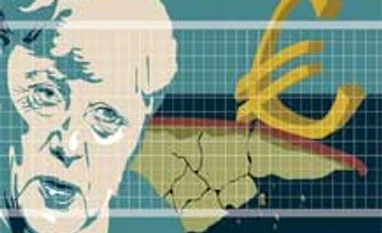To minimise any adverse fallout from the crisis in Greece, Indian banks have stepped up reviewing clients’ un-hedged foreign currency exposures, especially in the euro.
According to public sector bank executives, for the past year, banks have either avoided exposure to Greek financial system or kept it to bare minimum. Referring to the risks emerging from the Greek crisis, Arun Shrivastava, chairman and managing director of Syndicate Bank, said the bank’s London branch has been cautious. Back home, it is nudging customers to hedge the currency risks (euro) fully.
Senior executive with the country’s largest lender, State Bank of India (SBI), said SBI does not have any direct exposure. As for clients, the bank has been very conservative about keeping positions open. In the past, the Reserve Bank of India had sounded out the need for Indian companies to more actively hedge their foreign exchange exposure to protect the system against any risk of currency turmoil. The central bank has also asked banks to regularly report quarterly data for corporate customers' positions, including estimates of un-hedged foreign currency exposure.
The key event that will have a bearing on the future is the referendum that Greece will hold on July 5 over its bailout package. The people of Greece will decide whether the country should accept further stringent austerity as the price of staying in the Euro zone or risk greater economic turmoil by defaulting and leaving the Euro zone.
According to public sector bank executives, for the past year, banks have either avoided exposure to Greek financial system or kept it to bare minimum. Referring to the risks emerging from the Greek crisis, Arun Shrivastava, chairman and managing director of Syndicate Bank, said the bank’s London branch has been cautious. Back home, it is nudging customers to hedge the currency risks (euro) fully.
Senior executive with the country’s largest lender, State Bank of India (SBI), said SBI does not have any direct exposure. As for clients, the bank has been very conservative about keeping positions open. In the past, the Reserve Bank of India had sounded out the need for Indian companies to more actively hedge their foreign exchange exposure to protect the system against any risk of currency turmoil. The central bank has also asked banks to regularly report quarterly data for corporate customers' positions, including estimates of un-hedged foreign currency exposure.
Also Read
According to public sector bank executives, the euro currency has become quite volatile and the trades and transactions in euro denomination are at risk if positions are open or un-hedged. The market is still in panic conditions as ramifications are expected to unfold over a period of time. The major business centres for SBI in Europe are London (which is outside currency union), Frankfurt (German) and Paris.
The key event that will have a bearing on the future is the referendum that Greece will hold on July 5 over its bailout package. The people of Greece will decide whether the country should accept further stringent austerity as the price of staying in the Euro zone or risk greater economic turmoil by defaulting and leaving the Euro zone.
)